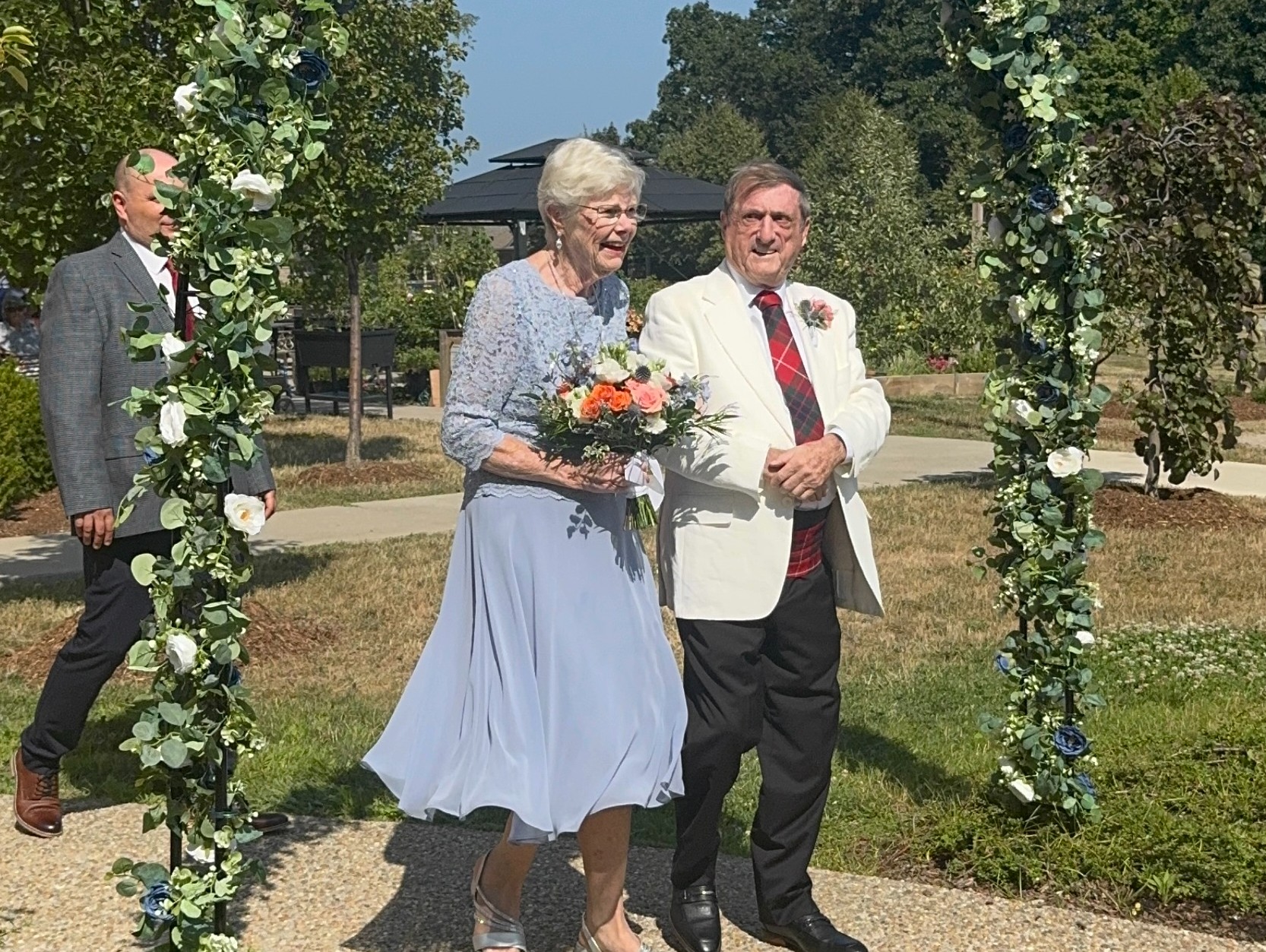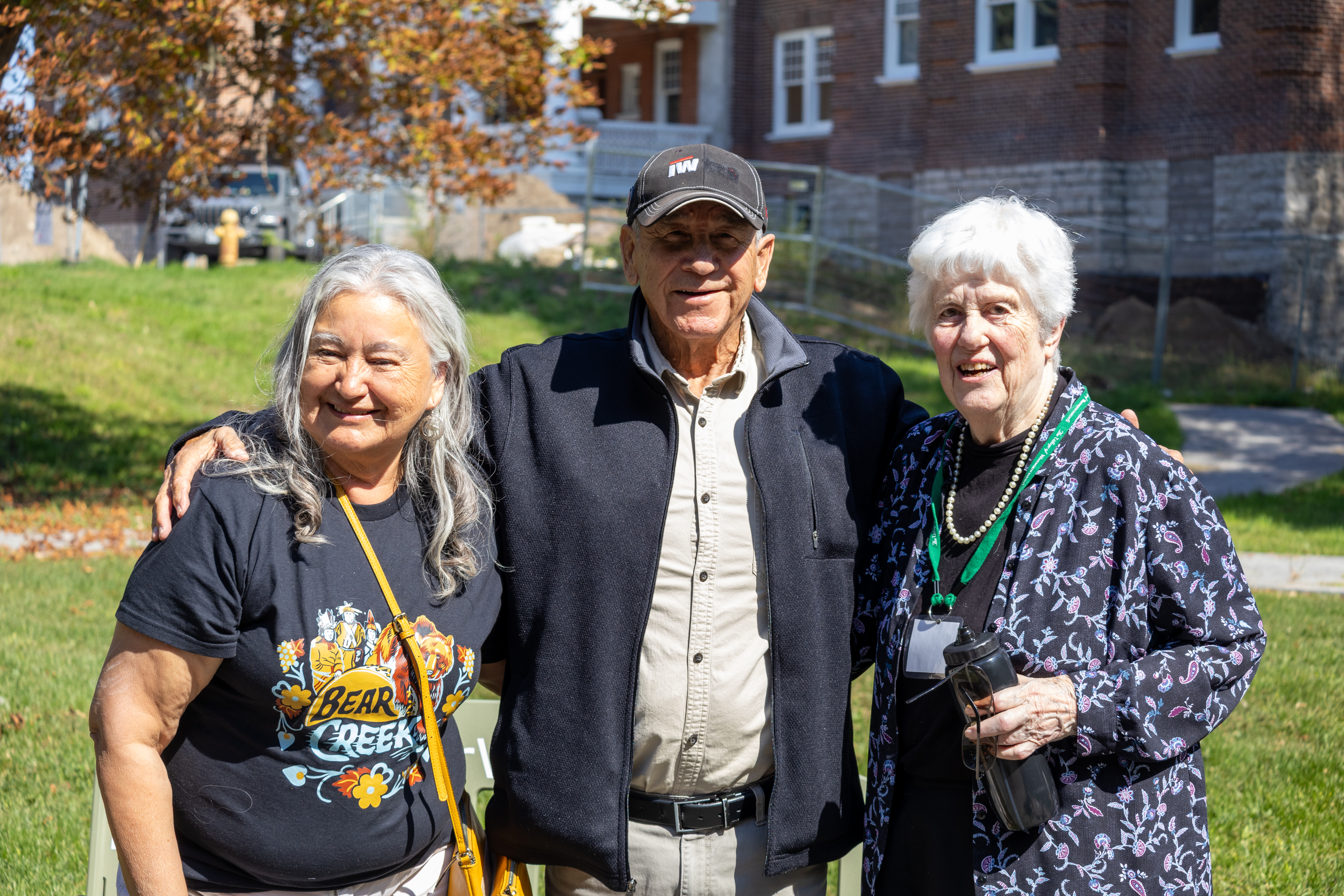The gathered audience of nearly 550 leadership team members seemed to blush a little at Schlegel Villages Operational Planning Retreat as Ontario’s Minister of Long-Term Care, Natalia Kusendova-Bashta, stepped to the podium and began to speak of the organization’s leadership in the sector.
 She had come with a prepared speech and some of her team in tow, eager to learn more about the internal quest within Schlegel Villages towards constant improvement, and she quickly chose to go off-script. With a background in emergency room nursing, Minister Kusendova-Bashta’s passion for the well-being of the people of the province is evident, and her curiosity feeds her mission: to learn from the homes and people transforming long-term care in Ontario.
She had come with a prepared speech and some of her team in tow, eager to learn more about the internal quest within Schlegel Villages towards constant improvement, and she quickly chose to go off-script. With a background in emergency room nursing, Minister Kusendova-Bashta’s passion for the well-being of the people of the province is evident, and her curiosity feeds her mission: to learn from the homes and people transforming long-term care in Ontario.
“Schlegel Villages has a special ingredient, a special magic,” she said, smiling in approval to the large audience. “I haven't figured out exactly what it is, but that is why I am here with my spies… to bring that special Schlegel magic to all of our long-term care homes across the province.”
Her remarks wove between admiration, reflection, and a call to action. She acknowledged the sector’s challenge over the past few years in the lingering shadow of pandemic-era criticism and the often-negative public perception, but she also pushed to flip that narrative. “I would like . . . to start talking about the amazing work that we do each and every day in long-term care,” she said.
“The time has come to start celebrating the incredible work that happens in long-term care.”
Kusendova-Bashta spoke passionately about team-based leadership and resident-centered care, following up on what she’d heard prior to taking the stage during Nancy Fox’s discussion on the flaws found in current approaches to organizational structure in most LTC settings.
“Let's flip that hierarchical thinking, and let's have more of a team-based approach,” she said. She called for greater autonomy and choice for residents, small gestures that make a big difference. Recalling her own nursing background in busy emergency rooms, she spoke of offering patients a variety of the drinks they might have with a meal.
“Just that one ability to give them a choice… it made a huge impact,” she said.
Achievements and investments reinforced her optimism. She explained that Ontario leads the country with an average of four hours of direct care per resident per day, a milestone reached in the first quarter of 2025. “That additional time allows staff to spend with residents… to talk about their youth, their childhood… family members and grandchildren,” she explained. She highlighted government investments in staffing, permanent funding for 16,000 new hires, and upcoming projects adding hundreds of new long-term care homes, always emphasizing that these are homes, not just “beds.”
Long-term care is about people – the team members like those gathered in the room, and the residents and loved ones who call LTC home.
She challenged the room to confront the “institutional dragon,” Nancy had mentioned – the bureaucratic inertia that can slow innovation. “Catch yourself when you’re being part of that dragon. The change starts with you,” she said.
She ended with a personal note, explaining that she is still shaping her own mission statement, which will most certainly reflect the values she saw in the room: purpose, passion, and people. “I know that all of you… are purposeful people with passion, and what’s most important, you care about all those residents in your care that are entrusted to you,” she said.
In a sector often defined by headlines of crisis, Kusendova-Bashta’s visit offered a different story – one of celebration, collaboration, and the quiet, powerful magic happening every day in Ontario’s long-term care homes.
Schlegel Villages is proud to be a leader in spreading hints of that magic.





































































































































































































































































































































































































































































































































































